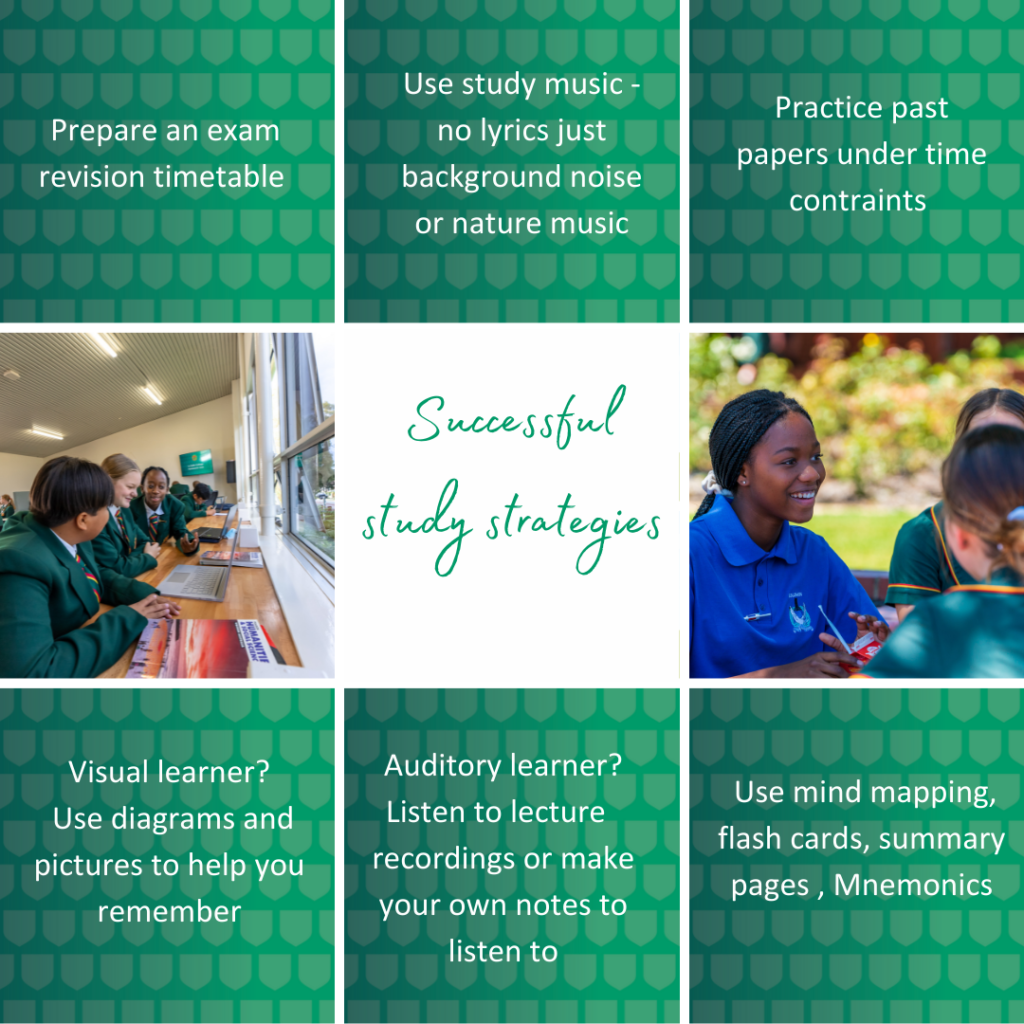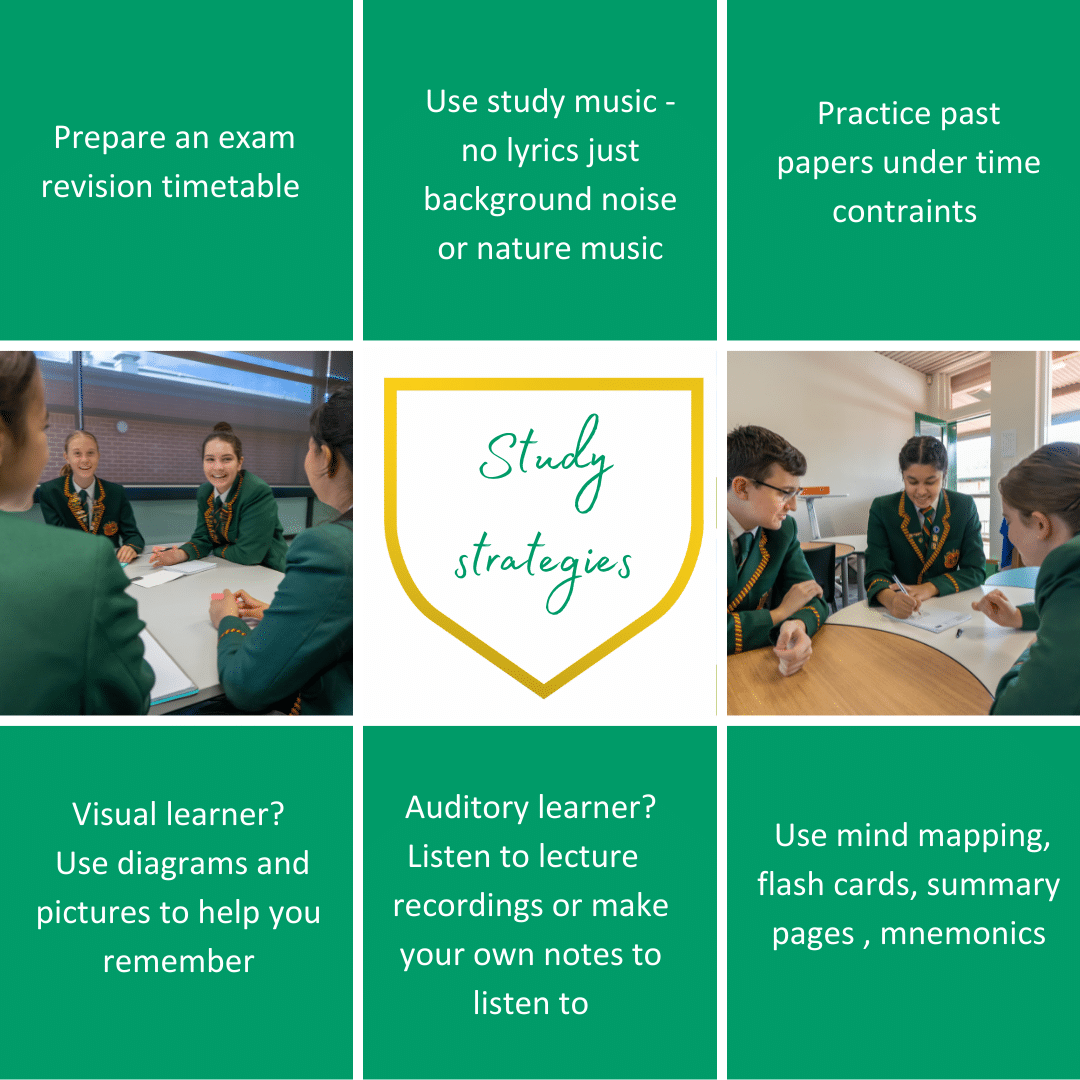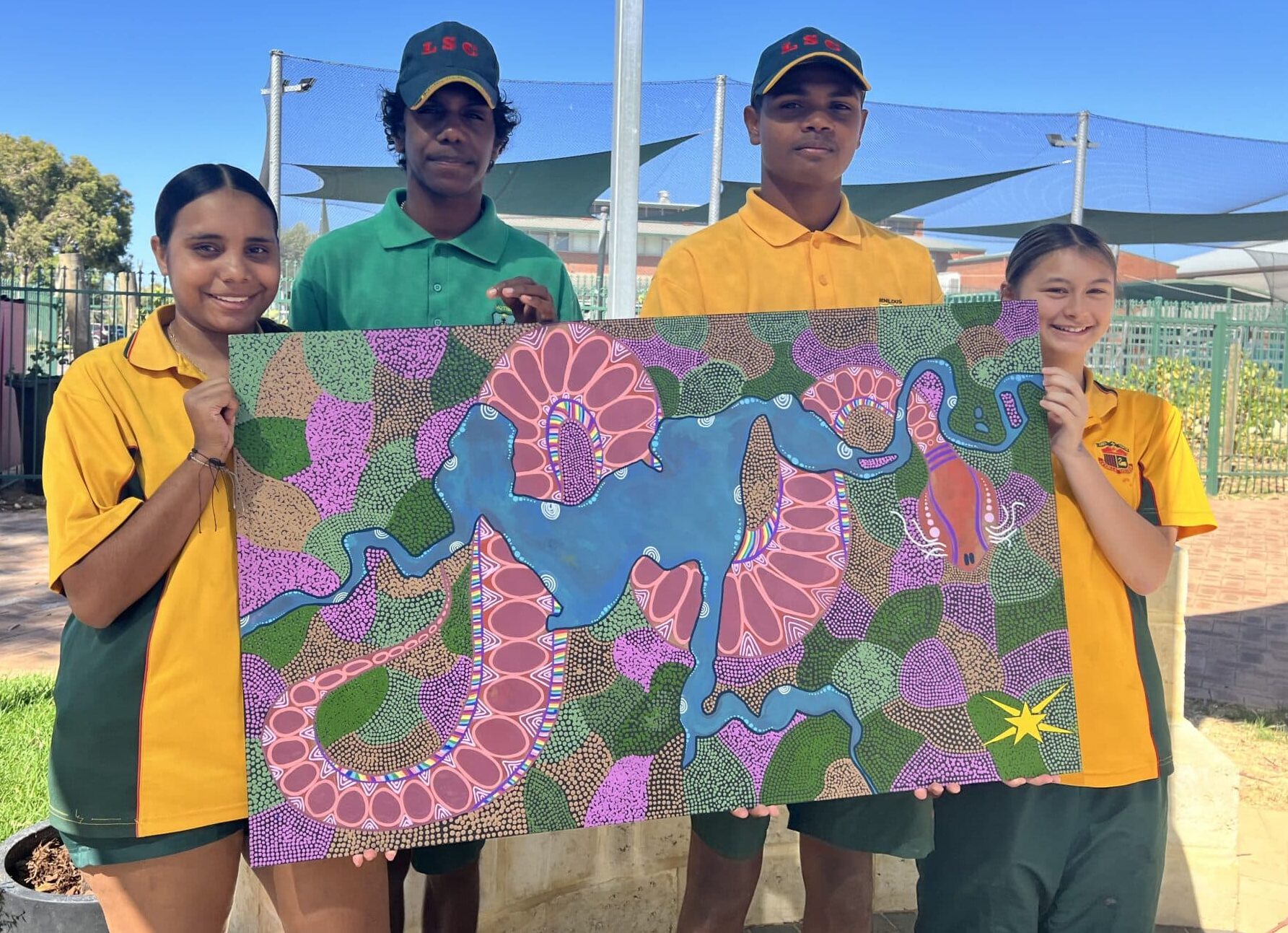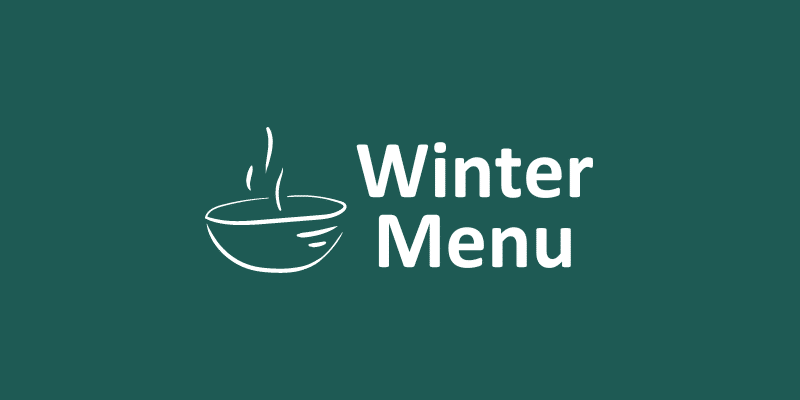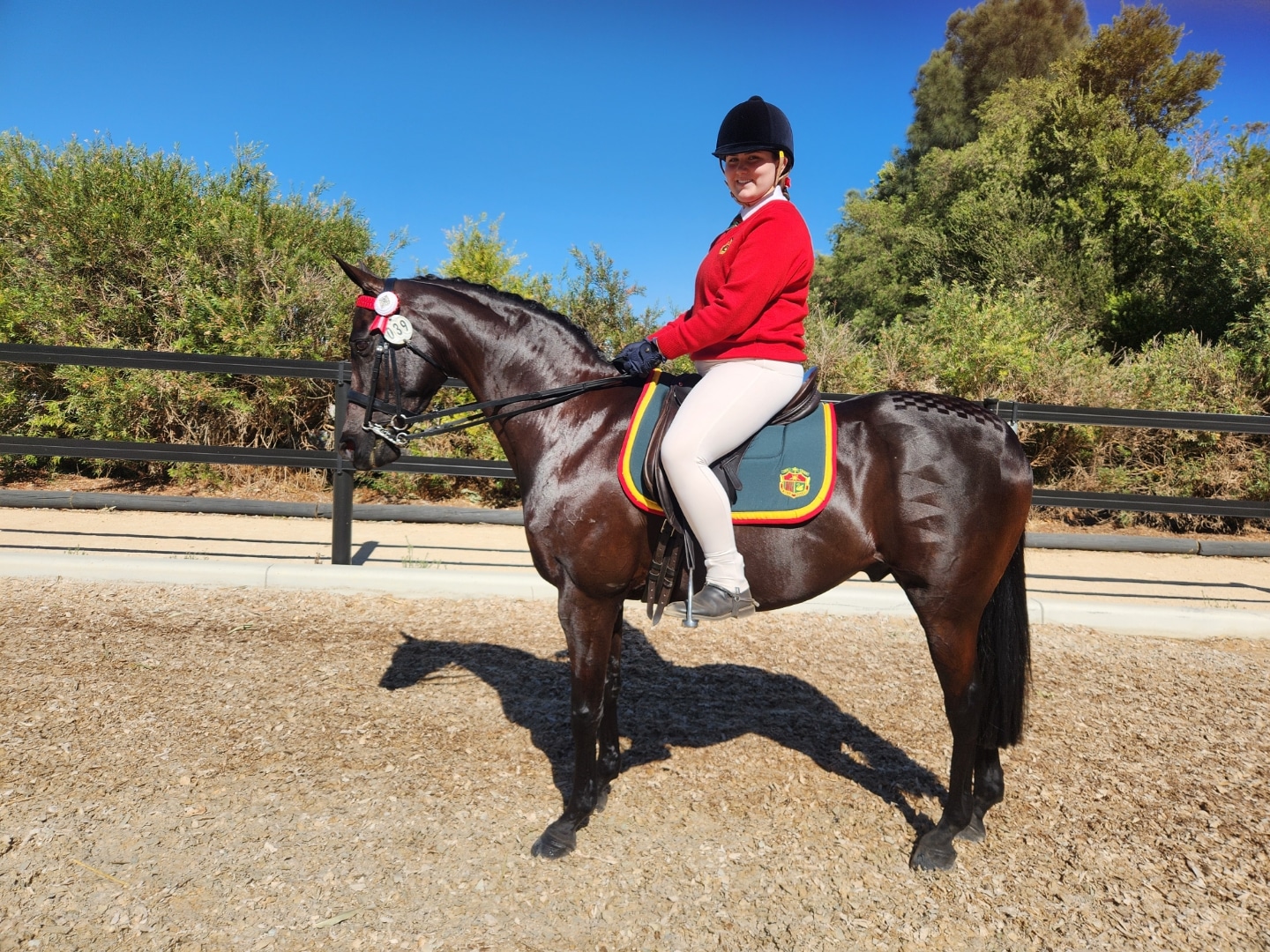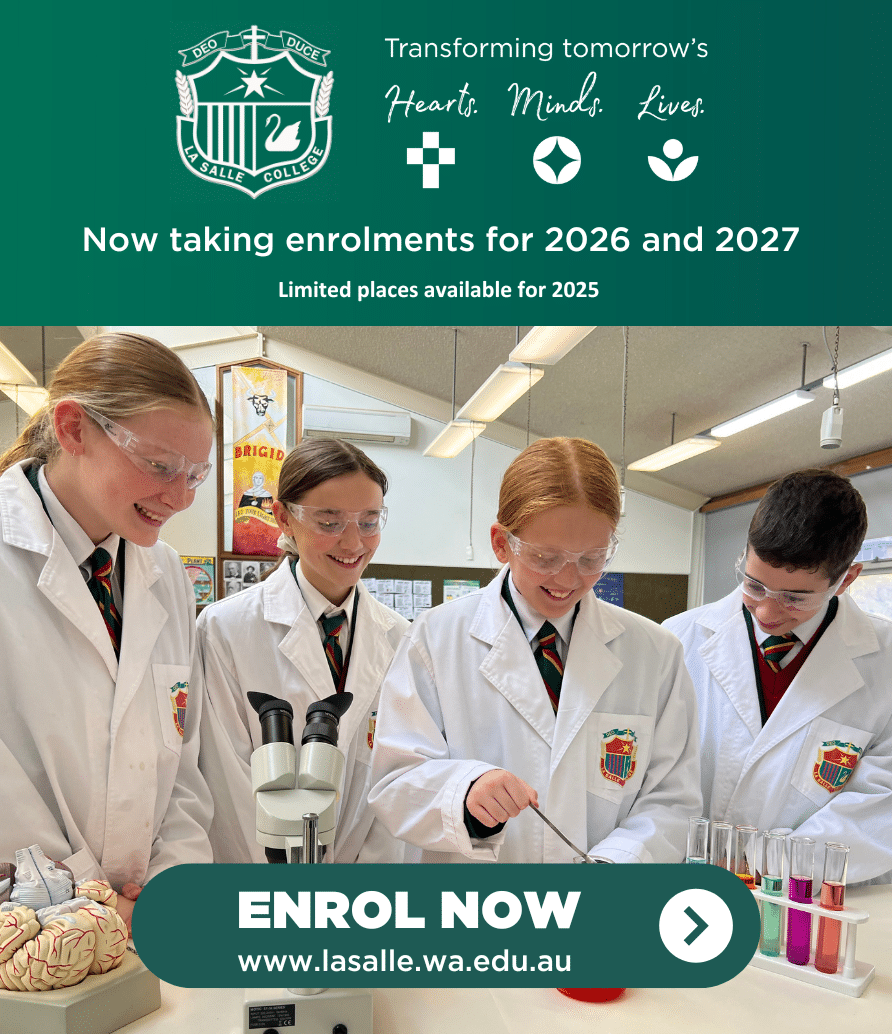Many courses have exams as part of their assessments. For some people, exams cause high levels of anxiety. Ideally, you should start preparing for your exams from day one. However, if you have not done this, it is not too late to develop successful study strategies.
Good study habits take time to develop, and everyone needs guidance and help as we all learn to develop this routine. As we approach exam week for our senior students, please take some time to read through the following useful study ideas:
- Develop an exam revision timetable where you break the course up into manageable ‘chunks’ for revision.
- Try to practise as many past exams papers as possible under time constraints. Look at the wording of the questions and familiarise yourself with the “clue words” – words that give you a hint a first glance what the question might involve.
- Organise your subject material, rewrite your notes, sort out what you don’t understand, review and catch up on any missed lessons/work.
- Work out when you can study most effectively. Are you more alert in the morning or evening? Schedule study times that suit your personal rhythms. Don’t study when you’re really tired. It’s better to get a solid night’s sleep after a short study period than to push on until 2am. Don’t cram the night before—it’s ineffective because you won’t retain much. You’ll also be tired and stressed when the time comes to actually sit the exam.
- If you’re a visual learner, diagrams and pictures can help you remember. Study actively – ask why (turn a chapter into a question).
- Auditory learners might benefit from listening to lecture recordings or making their own recordings of notes they can listen to later. Some people find it useful to explain key ideas aloud to themselves while moving around.
- Ditch your highlighter pens and start doodling. Reserve a small spot on the bottom of your page for drawing pieces of information. We remember information far more effectively from a picture/diagram than we do from words.
- Use mind mapping, flash cards, summary pages, Mnemonics (google it!).
- Photocopy diagrams, white out all the labels and then try filling them in by memory.
- Teach a friend, a family member, anyone who will listen!
- Snack study not binge study. Set a study goal for 15 minutes, then break for 5 minutes, set another study goal for 15 minutes…
- Use study music – no lyrics is best (music soundtracks often contain no words), backgrounds noises or nature music.
- Homework is not study. Also pseudo study is pretend study….do you hide your phone under your desk, do you drift off or do talk to your friend about other random things that is not actual study?
Most importantly, look after yourself. Don’t forget to get some rest and relaxation and breathe! You have got this.
Remember your teachers are here to help…you just have to ask.
References
